In the pages of his grandfather's memoirs, woodwind artist Ben Kono found more than family history. He discovered the story of thirteen-year-old Juhei Caleb Kono, who left Japan alone in 1911 and sailed to America, launching a multigenerational saga to shape his family's future. This revelation led the Grammy Award-winning musician to create Voyages. This ambitious work brings together his jazz quintet and a classical string quartet to tell his family's American story.
The suite follows his grandfather's path—from crossing an ocean to working Pacific Northwest farms, attending fourth grade as a young adult, and building a new life—while weaving through four generations of Japanese American identity. As Kono developed this Chamber Music America-commissioned project during the pandemic, a surge of anti-Asian sentiment in New York City brought unexpected weight to these narratives of belonging and resilience. The music is a family tribute to the broader immigrant experience.

Lawrence Peryer: Could you tell me about the genesis of Voyages and how your grandfather's memoir inspired it?
Ben Kono: Voyages is very much a family-inspired project. Growing up, I was far from most of my family, especially my Japanese-American family, who all grew up in the Pacific Northwest, specifically Seattle. I didn't have a strong connection to my cousins, uncles, or grandparents as some people do.
I didn't connect with them strongly until I was a young adult and started hearing stories about my grandfather. I didn't have a clear picture of how he came to the United States until about five years ago. One of my aunts, Midori Kono Thiel, translated his memoirs from Japanese to English and distributed the first chapter to our extended family so we could all get a good sense of his history before we were here.
I was just fascinated reading it. It was like opening a door into a family history I'd never been privy to. I think it's universal to many immigration stories—people who come here looking for a better life—and, at the same time, unique. He came over in 1911; he was 13 years old. He came over by himself, worked on a farm, and went to fourth grade when he was, I think, a young adult and then finished high school.
The whole reason for doing that was, of course, to send money back home to Japan. Not many people know Japan's history, but they were embroiled in a war with China. A lot of people were in dire poverty. So many Japanese Americans came over in the early 1900s before there was this thing called the Gentleman's Agreement, which hindered a lot of immigration after that.
I noticed the whole thing had almost a theatrical story as I read it. I could hear the sounds of music, the sounds of the temple bells in the Buddhist temple that he grew up next to—this was just outside of a small town outside of Hiroshima—and then the rhythm of working in the fields, in the orchards. He did what immigrants typically do when they come over: a lot of farm work. Back then, there were a lot of big farms in the Pacific Northwest, and these ideas, musical ideas, started coalescing in my mind.
I thought what a great tribute it would be to my grandparents, who provided this platform for our extended family to grow up in the United States, and to my immediate family members, my aunts, who are beyond octogenarians now. They're very old, and I wanted to do something to honor them while they're still around. Sadly, one of my aunts just passed away a couple of weeks ago.
Researching my family history to complete this musical project has fascinated me. I did end up pitching this idea to Chamber Music America, and they provided a grant to finance the project, put on some concerts, and record an album.
The pandemic had a weird effect on the recording itself, particularly regarding the weight of the project, in that a lot of anti-Asian sentiment started to surface in New York, which has a huge Asian population. That certainly affected me. As an adult, you can pick and choose your community, and having this come up during that time brought back some pretty ugly memories. I'm a father of a teenager, and explaining where all this is coming from added extra gravitas to the project's theme.
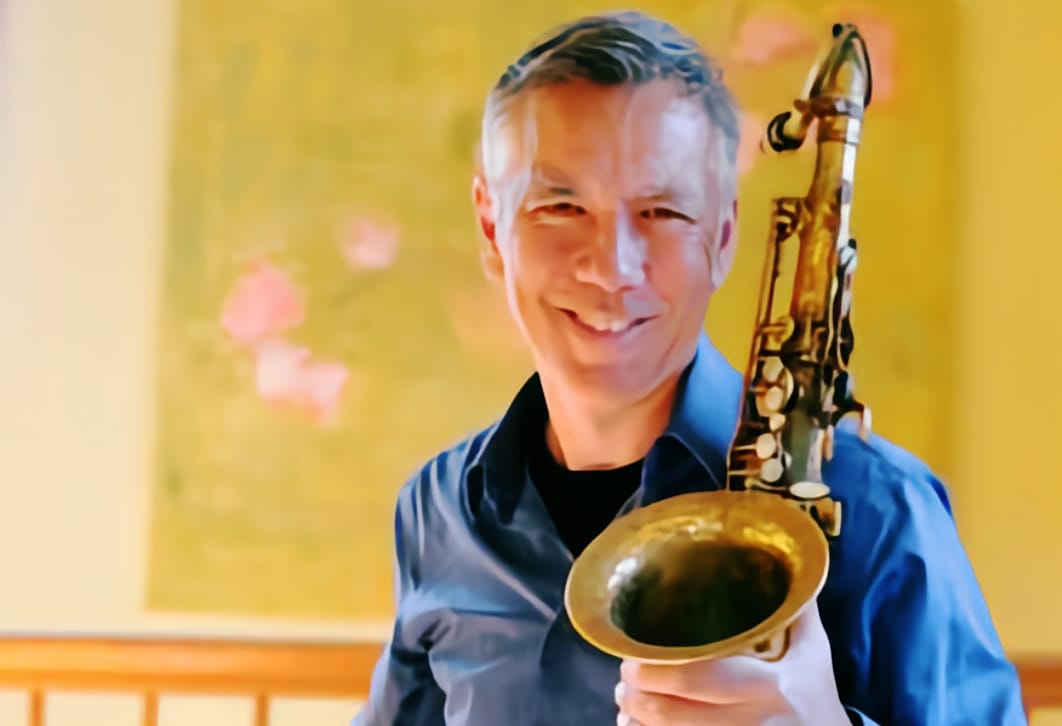
Lawrence: Could you talk a little bit about how your perspective on your own identity has evolved through the process of this project?
Ben: I would say that there's a certain amount of pride that I want to convey about being part of this extended family and having a connection to Japan. Also, my mother is a first-generation immigrant in our family—she's from England. So, we are mixed race, and my son is a mixed-race young man. It became increasingly important to convey that sense of pride and ancestry as my son started identifying more with his Japanese roots.
He came at it from a different direction—he's a visual artist and is into manga and anime. He started teaching himself Japanese using the Duolingo app so that he could understand the words. He wanted to watch anime in its native tongue. That's incredible. It's such an interesting way of reaching into your ancestral roots.
I had a conversation when I was much younger with my aunt, Midori Kono Thiel, who was also an artist and a musician. She studied shamisen, a traditional Japanese string instrument, and koto. I remember talking to her once and saying, "It's shameful, isn't it, that none of us speak Japanese?"—or at least my family on the East Coast. And she said, "Why would you do that? You're not in a Japanese-speaking household. You're not in a Japanese-speaking country, but you're a musician. Why don't you learn the shakuhachi flute?" She knew I was a wind instrument player and thought that this would be something I could dive into a little bit easier.
It turns out it's a difficult instrument to play, but it exposed me to a lot of traditional Japanese music, and I approached it that way from a musical standpoint. I'm careful about cultural appropriation in my music, but I think it's more just a way to tap into my heritage as a Japanese American.
Lawrence: Does the music on this album carry a message, or is it making a statement? Is it a commentary on immigration and identity?
Ben: Today, you might listen to it and immediately think, "Wow, this has a lot of resonance given the political climate that we're in right now." But honestly, when I started this, it was just about honoring.
My grandfather worked hard to become an economically independent American citizen. He was here before the Great Depression, before World War I. He lived through that, through two great wars, one of which had terrible repercussions for the Japanese American community. He lived through a lot of racism, especially around World War II. The family had settled in Hawaii, in Lahaina, Maui—they moved there right before World War II broke out, or at least before the Americans were involved with the Japanese War.
A lot of neighbors were sent to relocation camps. I have uncles and aunts who spent their entire high school years in relocation camps. I think there's a message in knowing the history of what Japanese Americans have gone through, but I didn't have that in mind when I started.
I feel like people need to be informed more than ever about what it is to be an immigrant or what it is to be the descendant of an immigrant who looks different. We're in this phase of nationalism, I feel, where there's "us" and there's "them," and there's not a lot of space in between for acceptance.
The suite that I call the Generation Suite has four generations of Japanese Americans—Issei, Nisei, Sansei, and Yonsei—and is about honoring the generations. I had this idea that with each generation, that we appropriate more and more of what Americans are or what Americanness is. We start to maybe either lose our Japanese-ness or become more fused with our American culture. You can hear how that happens throughout the suite, or at least that was my intention.
This seed happened, almost like a mutating DNA that, through each generation, gets away from the original but always comes back. I feel like in my own life, I've spent my childhood, especially my teenage years, really trying to fit in with my perceived community. Growing up in southern Vermont, we were the token Asian family in town, and it was hard to look in the mirror sometimes and admit, "Wow, I look a lot different than my classmates." It wasn't until later, as a young adult, that I embraced my cultural heritage.
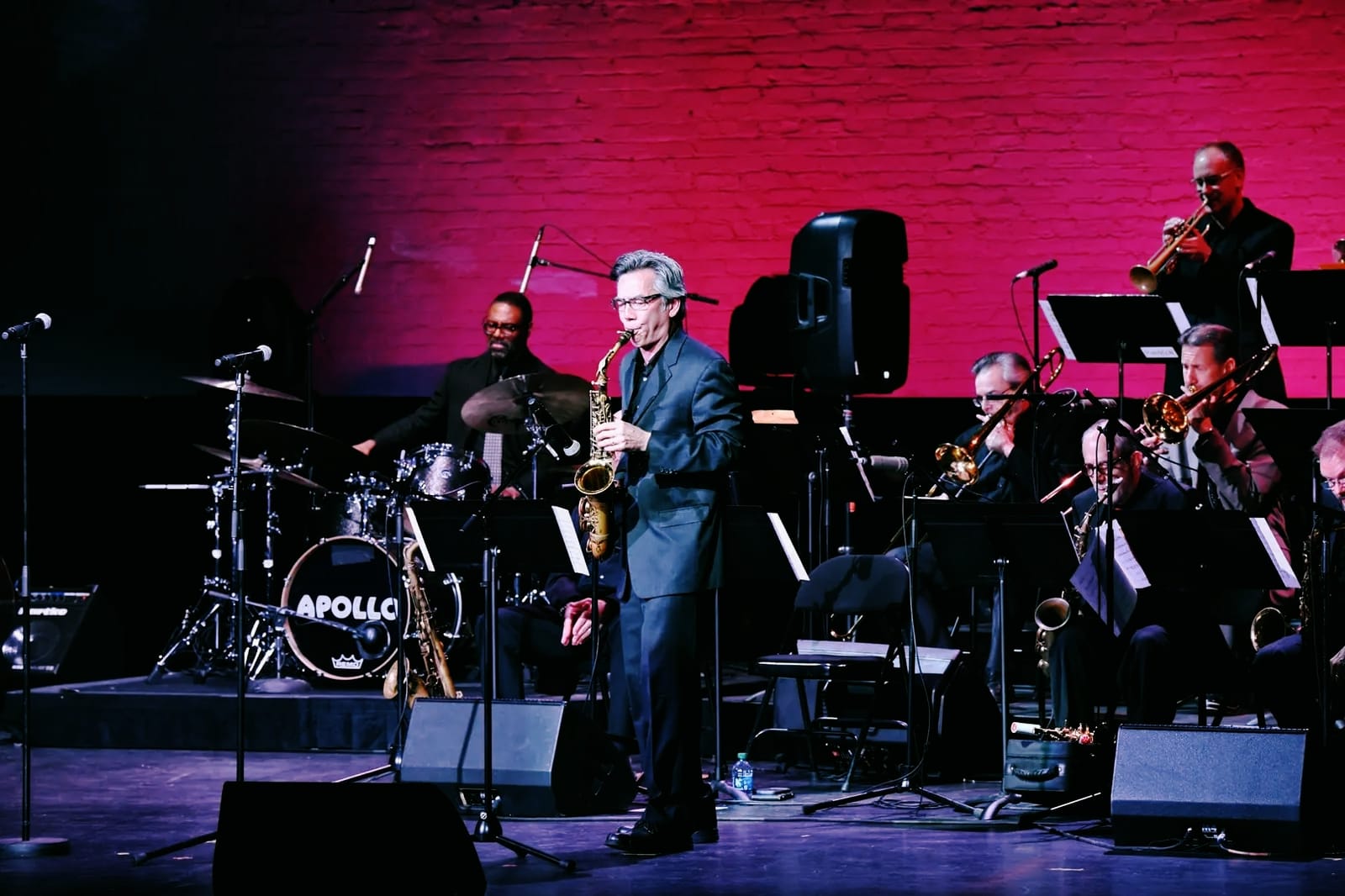
Lawrence: Can you talk to me about the possibilities of your unique instrumentation for the jazz quintet with the string quartet? What were you aiming for with that combination?
Ben: I've always been interested in larger-form composition. I wanted to write for a string quartet, but I couldn't quite let go of the jazz element since that's my improvisational vehicle to tell a story.
Even my first two records don't have what you would call a standard jazz tune. I started as a classical clarinet player. My father was a big fan of classical music; we often listened to it at home. So, I always had that sound in my head. And then I got the jazz bug in high school and went down that road. I always kept my feet equally in the classical and jazz worlds, as I still do today.
I do a lot of orchestral work in New York City. I do a lot of theater work, which requires wearing many different hats—a lot of classical training and being able to swing like a big band. Specifically for this project, I wanted this nostalgia, especially going back and trying to tell stories about my grandparents' early arrival to this country.
The string quartet is such a timeless vehicle—it can have that nostalgia element, but it can also be incredibly modern. As I started writing, I just realized what an extraordinary palette the string quartet has. I listened to many of the Bartók string quartets and their extended techniques. I analyzed the Ravel string quartet, one of my favorite pieces ever written.
I wanted to use friends I've played with in many of my crossover groups for this quartet. So Sarah Caswell, Meg Okura, Jody Redhage Ferber, and Lois Martin are great at playing classical and jazz music. The rest of the group consists of musicians we've all played with together for a long time. Sometimes, I write for groups based on friends that I'm close with because I hear their voices so distinctly. And certainly, when it came to the string quartet, I heard Sarah Caswell and Meg Okura playing violin on it.
They're both great improvisers, and I wanted to feature them as much as I could as improvisers; I also wanted to create a body of work that starts with a string quartet and then branches out into more of the jazz elements. So, we have jazz guitar, bass, and drums, and then I play a host of woodwind instruments that glue the two together. I have English horn, which is typically not heard in the jazz setting, and then flute, which I think we can recognize in both jazz and classical worlds, and then saxophone, which reflects the kind of work I do overall as a sideman.
Lawrence: Are there particular challenges or opportunities compositionally that come up when you blend these two worlds?
Ben: That's the key—choosing the right people. It's amazing how quickly it coalesces when we're all in the room together. People just know how things work. Jared Schonig, my drummer, is one of my favorite big-band drummers in the world. He's just an incredible powerhouse. And yet, with a string quartet, he knows when to change sticks to something that's very quiet and is going to show off the frequency of the strings in a very complementary way.
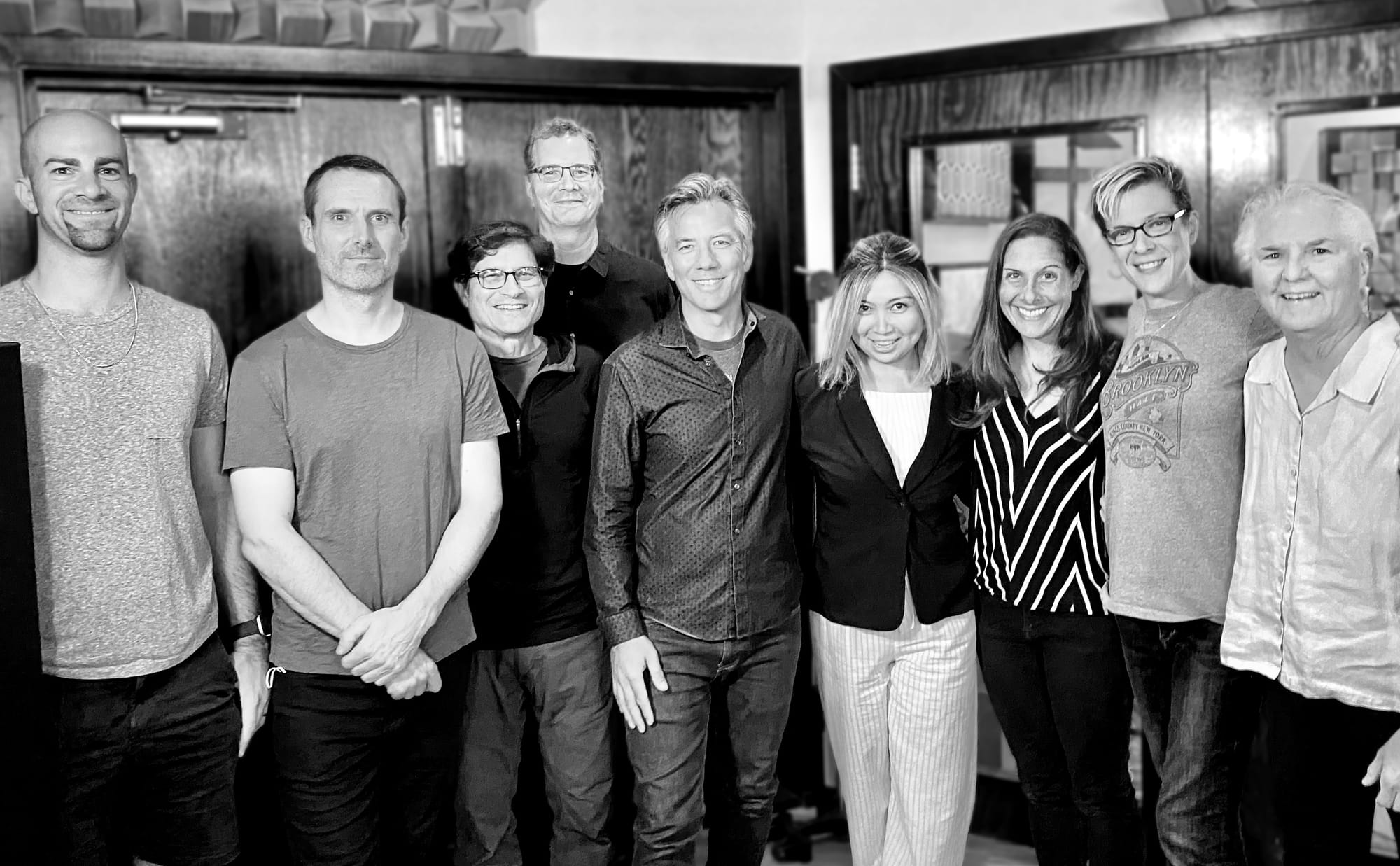
It's the same if I pick up the flute or the English horn. That part, I think, came together quickly. And I always tell people who are young composers that your tune is only about 50 percent complete when you bring it in front of a bunch of musicians. Let the musicians do what they do; your composition will be much richer.
So, it's always like a workshop when I bring this stuff in, and they say, "Why don't we do this way? Why don't we put some double stops here, and we can fill out the texture of the strings more?" So, you do your homework to figure out how to write for these instruments, but there's only so much you can do, and there are so many tricks of the trade that these musicians will bring in.
But the initial writing of the music—balancing the compositional and improvisational elements—is the most interesting thing to try to write for. How do you make it organic so it's not just "Okay, here's people playing, now here's some written music, here's some improvised stuff?" And again, having musicians that you can say, "Look, I want this section to bleed over into the written part from the improvised part"—having musicians that know how to do that is a big help.
I went to a music conservatory with an esteemed classical and an esteemed jazz program, yet there always seemed to be this artificial rift between the two. I never really understood that, and when I talk to students who have graduated recently, they say, "Yeah, that's still a thing there," which is surprising.
I think those lines are blurred now in the music world that we're living in. There are jazz string programs at universities. Some jazz musicians are coming out as classically trained but pursuing jazz careers, and composers are taking a lot from both and putting them together.
Lawrence: Could you tell me the story behind "Belong"?
Ben: I wanted to write a piece to honor my grandmother, Hisako Narakono, or my obachan, as we say in Japanese. I have these warm memories of my grandmother from when I must have been five, six, or seven years old, of my parents being at work and her coming in and taking the mother role, as you do as a grandparent.
I created this piece with her in mind but also with the thought of what it must have been like for her to find a community and for both my parents to find a community in the 1930s—this is when I believe they met. The idea grew more into what we're searching for when we come to a new country: stability, belonging in a community, and all that.
You can hear the string quartet midway through, where it takes over by itself. That was the first part of that tune I wrote, and then I expanded it on either end. But it's had an interesting life. The cellist in my group was taken with that piece, and she's my neighbor in Nyack, where we live in upstate New York. She put on a community concert called "Ecotones," an outdoor event celebrating nature.
She had all these different groups play. I played in a little jazz quintet with her husband, Alan Ferber, a great trombone player and composer. And then we all got together at the end to play this big orchestral concert using—and this was the biggest thrill for me—our high school's chamber string orchestra, in which my son plays cello.
I expanded this piece for a full chamber orchestra with a few ringer jazz musicians playing various brass instruments and myself conducting. That was one of the thrills of my life, just to hear that ensemble and watch my kid playing along. Yeah, it was a beautiful event. It was outside beautiful sunny weather. You couldn't ask for a better gift than that.
It was a total intergenerational concert. There were a bunch of father-son, mother-son pairings in that ensemble.
Lawrence: How about "Across the Pond?"
Ben: "Across the Pond" is, on the face of it, the anomaly of the record because it doesn't draw on any kind of Japanese theme. However, it is very much thematic in that I wrote it for my mother, a first-generation immigrant from across the pond, from England.
She's a big fan of the British composer Vaughan Williams. One of my first string projects was to write a piece that Vaughan Williams inspired. Much of his music was influenced by folk songs and English dance.
It has that lilt that you might confuse with an Irish reel or an Irish jig, but it's influenced more by some of Vaughan Williams' string quartets. And again, with this piece, I started with the strings and then expanded it. It does take more of a jazz vibe when it goes to what you would call the bridge of the tune, and then it ends up with sort of an Appalachian-style jig at the end that features Meg Okura, a great jazz improviser on violin.
Lawrence: Which, by the way, is also connected to all that English and Scottish folk and church music …
Ben: Absolutely. One part was inspired by her description of coming to America on a ship with my father, whom she met in Europe, and the first thing she saw of America was the Atlantic Plains from the Chesapeake Bay.

The ship would come through Baltimore and then go up the Chesapeake Bay to New York, where they eventually disembarked. She remembers looking out the window early in the morning and seeing these farm fields full of cows. She said it was just so beautiful. She had a lot of trepidation coming to this country. I think a lot of immigrants do. You're adopting a new country, and for her to see that was a calming element to her coming over. It also reminded her of the countryside in Kent, England, where she's from. So, one section at the very end was influenced by that. And again, I'm trying to take some musical cues from Vaughan Williams.
Lawrence: How did your family respond to this music? Have they heard it?
Ben: I remember talking to my Aunt Midori about this piece I wrote called "Bata Kusai!!," which means "butter stinker" in Japanese. From what I understand, it's a strange and old-fashioned sentiment. Still, it has to do with an exclamation that my grandfather had expressed in his memoirs about his first impressions of coming to the United States, particularly about the food and how strange it was—"Oh, this food was bata kusai!"
I couldn't wrap my head around it. And then I remember asking her about that, and she's like, "Bata kusai? You're going to name a tune that?" And she just laughed. And I think there was a lot in that laugh about, "Yeah, that's something your grandfather would have said."
I wrote one of the movements of the Generation Suite called "Nisei," which was really to honor my aunt Midori and my aunt Sumi, who I look at as the caretakers of our family history, especially my aunt Sumi. Every time we visited Seattle, she would break out these photo albums of photographs of my grandparents, who are now 80 years old, when they were little or teenagers.
I know they played the record for my aunt Sumi right before she passed so she could hear the whole thing. I can't wait for them to hear it in person. We've been performing it in the New York City area several times, but I'd love to perform it in Seattle and have them come out and hear it.
Lawrence: Any opportunity to?
Ben: I hope so. I'm trying to get some playing opportunities out there. The booking of any kind of ensemble is hard work, but especially one with as many moving parts as this has. It's always a labor of love, and we don't do it to get rich.
Visit Ben Kono at benkono.com and follow him on Instagram and Facebook. Listen to Ben Kono's music on Bandcamp, Qobuz, or your streaming platform of choice.
Check out more like this:
 The TonearmLawrence Peryer
The TonearmLawrence Peryer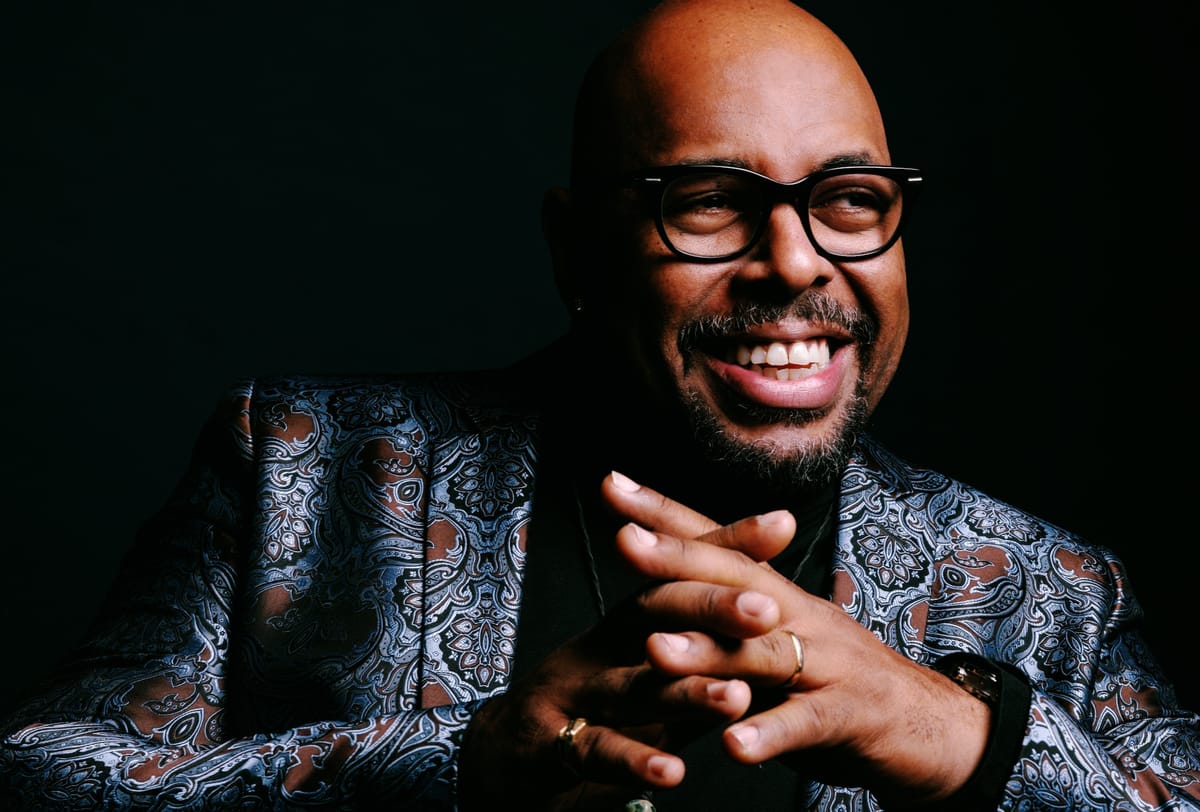
 The TonearmLawrence Peryer
The TonearmLawrence Peryer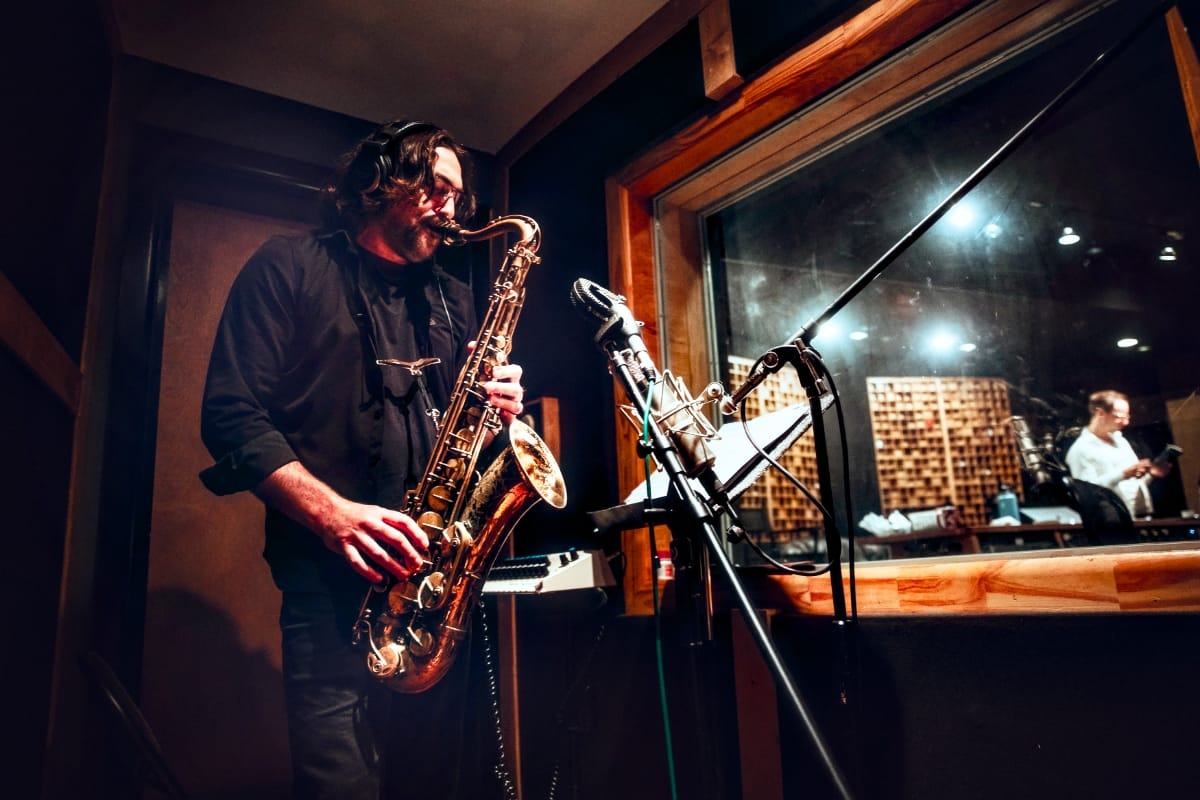


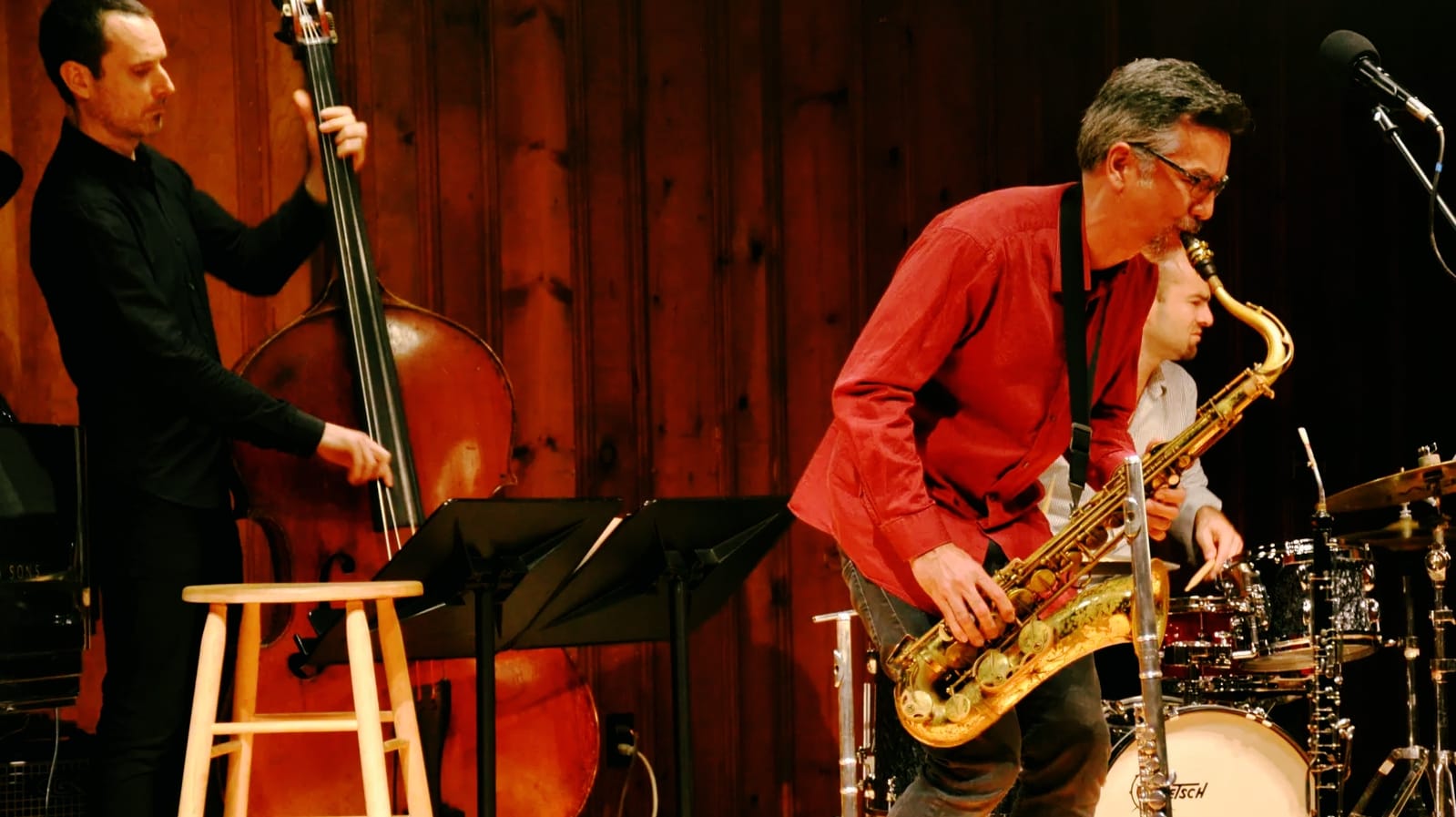




Comments